

09:35 | 04/02/2026
The wood industry embaces sustainability through international cooperation
21/04/2025
By participating in the VAS Program, May Forestry has received high-quality technical support, including international-standard energy audits and in-depth analyses of the technical and economic potential of energy-saving solutions, laying the groundwork for turning these solutions into viable investment projects.
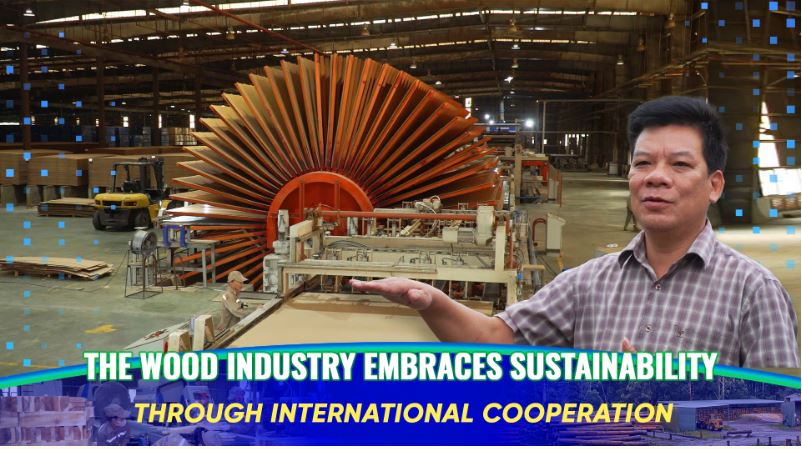
As one of Vietnam’s key export sectors, the wood processing industry must not only ensure the legality and sustainability of its products but also significantly cut carbon emissions throughout its supply chain to contribute to the nation’s net-zero emissions target.
In response to growing pressure from international markets for sustainable, low-carbon products, May Forestry Joint Stock Company has proactively adopted a range of measures to green its production processes.
Most notably, with the technical support provided by the Voluntary Agreement Scheme on Energy Efficiency in Energy-Intensive Industries (VAS)—a joint initiative between the governments of Vietnam and Denmark—May Forestry has been able to access advanced technological solutions to improve energy efficiency and optimize production costs.
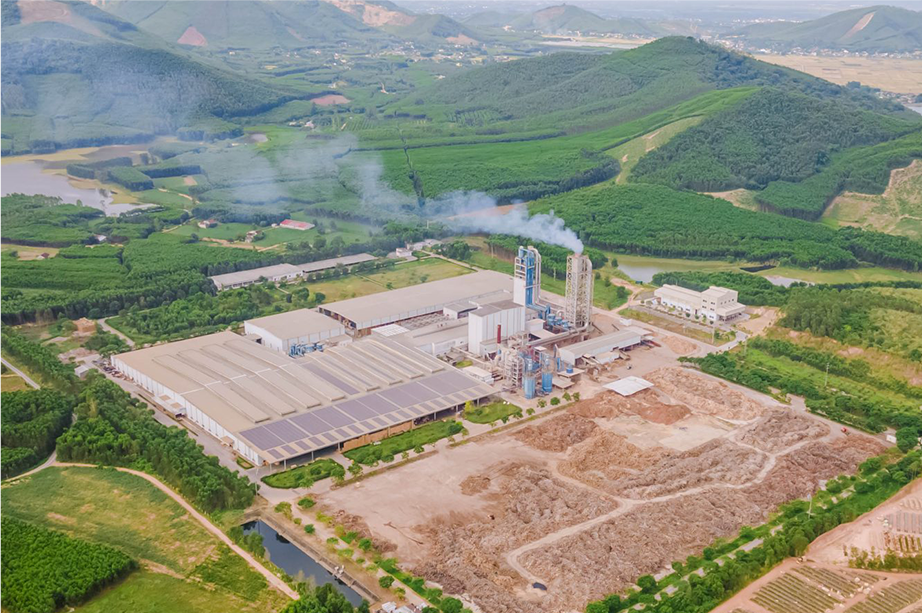
Green products and production processes are no longer just a trend but a mandatory requirement for several industries, including the wood processing sector. From an enterprise perspective, can you provide your opinion on this issue?
Mr. Nguyen The Mai:
In the current context, green products and production processes are no longer a mere strategic choice but an imperative requirement for many enterprises, particularly the wood processing ones. Major export markets such as EU, the US, and Japan are imposing stricter regulations on legal wood sourcing, emission reductions, and sustainability certifications. As a result, enterprises may face a high risk of being excluded from the supply chain if they fail to meet these stringent standards.
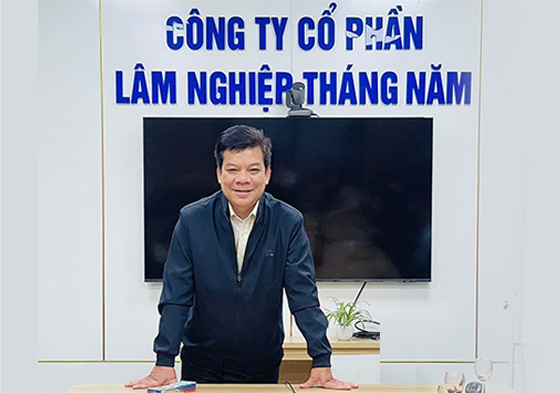


According to experts, the market is evolving rapidly, and without prior preparation and timely adaptation, enterprises will face immediate difficulties. In your opinion, what are the key challenges for enterprises like May Forestry and the wood processing sector as a whole?
Mr. Nguyen The Mai:
Firstly, the wood market is undergoing a profound shift toward green and sustainable products. The entire wood processing industry faces increasing pressure from environmental standards and sustainability requirements in export markets. In response, local wood enterprises are continuously investing in technology and internationally certified production to remain competitive.
For May Forestry, despite having a sustainable development strategy, we still encounter growing pressure from customers demanding stricter certifications, especially in major markets like EU and the U.S. To stay competitive in export markets, we must not only meet current standards but also continuously innovate to adapt to evolving trade and environmental policies.
Secondly, several enterprises in the wood processing industry still rely on outdated technologies, leading to high consumption of energy and materials. However, for small and medium enterprises, upgrading technologies poses challenges due to limited access to preferential financing. The lack of clear financial support mechanisms, coupled with high commercial interest rates, creates significant barriers. Without proper financial backing, investing in technology upgrades could disrupt production if not planned carefully.
At May Forestry, we have adopted energy efficiency solutions and modernized our production lines. However, further advancing automation and integrating renewable energy on a larger scale still requires a thorough evaluation of economic efficiency and feasibility.
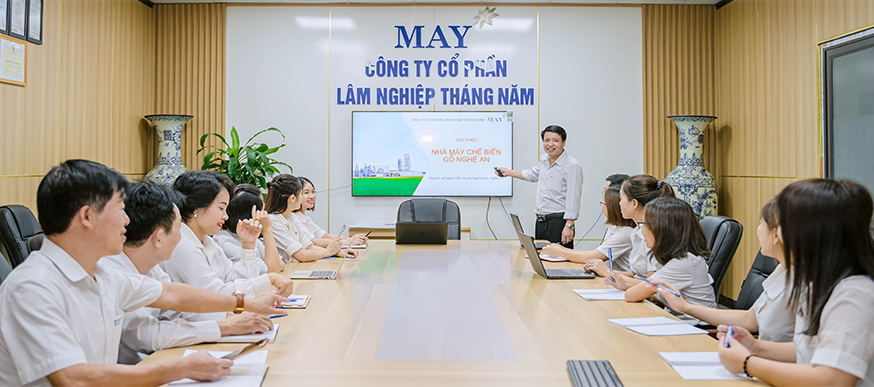
Thirdly, the industry demands a highly skilled workforce capable of supporting the transition to green production. However, there is a shortage of professionals specializing in energy management, advanced production systems, and environmental control.
May Forestry has an experienced technical team, but to implement broader green initiatives, we need further training in energy efficiency technologies, automation, and international sustainability standards. Additionally, attracting top-tier talent remains challenging, as the wood industry lacks the appeal of other high-tech sectors.
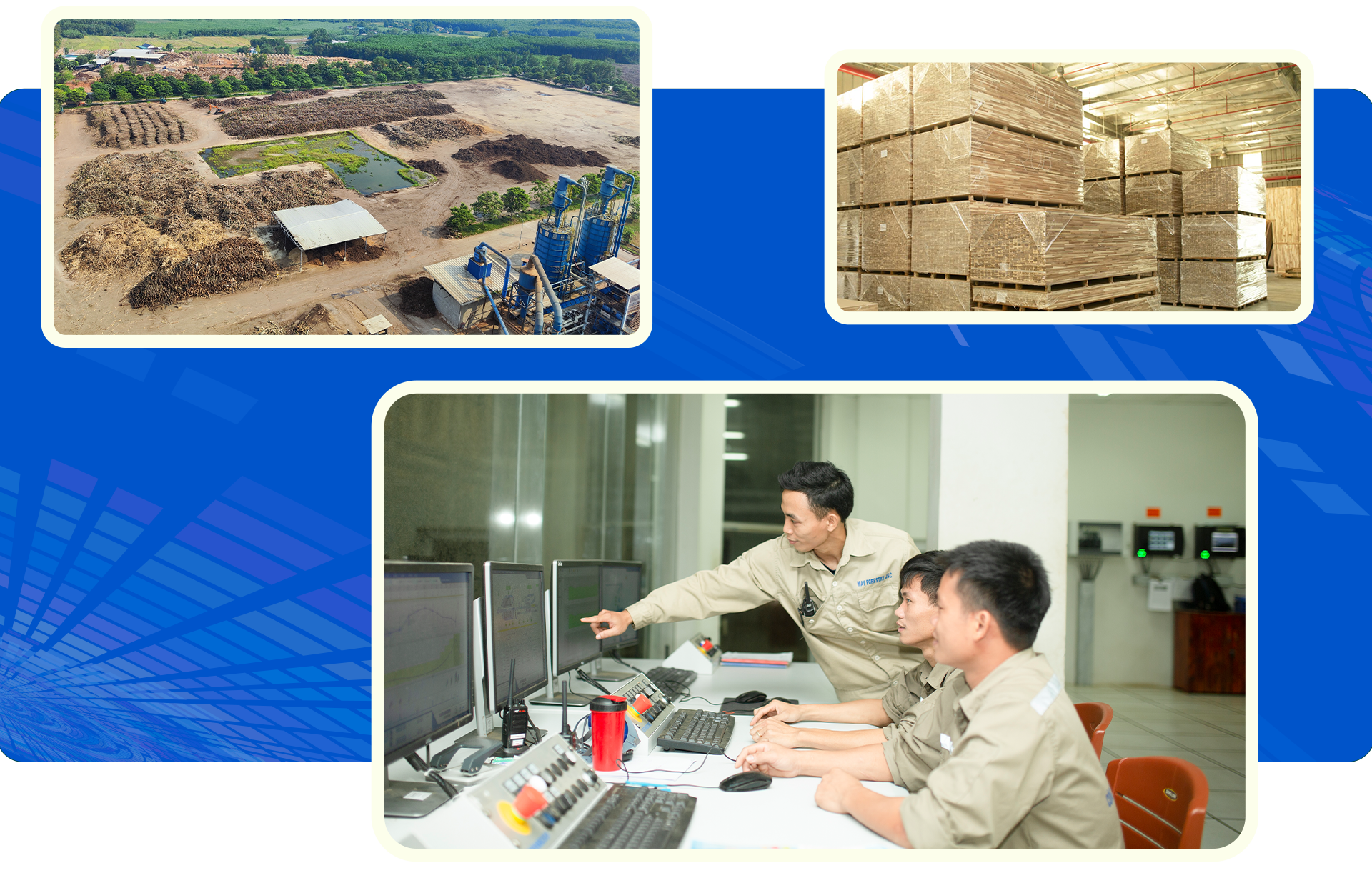
How has May Forestry prepared and what plans or solutions have been implemented to adapt to market changes and challenges?
Mr. Nguyen The Mai:
To adapt to market changes and challenges, we have proactively implemented a series of comprehensive solutions across the enterprise.
First, in terms of infrastructure, May Forestry has invested in modern technology and advanced systems to optimize production processes. This includes Valmet’s (Sweden) advanced grinding system, Dieffenbacher’s (Germany) CPS continuous press, and carpet forming system, Steinemann’s (Switzerland) sanding machines, etc.
Second, regarding workforce quality, we prioritize training our technical teams to strengthen their expertise in managing and operating advanced production systems. Regular updates on green standards and sustainability certifications are also provided to ensure our products meet both domestic and international market requirements.
Third, we actively participate in industry programs and initiatives led by government agencies to explore new technologies and innovative solutions. Recently, we joined the Voluntary Agreement Scheme (VAS) on Energy Efficiency, a program implemented by the Ministry of Industry and Trade in collaboration with the Danish Energy Agency. We remain committed to staying ahead of industry trends and proactively adapting to market fluctuations.
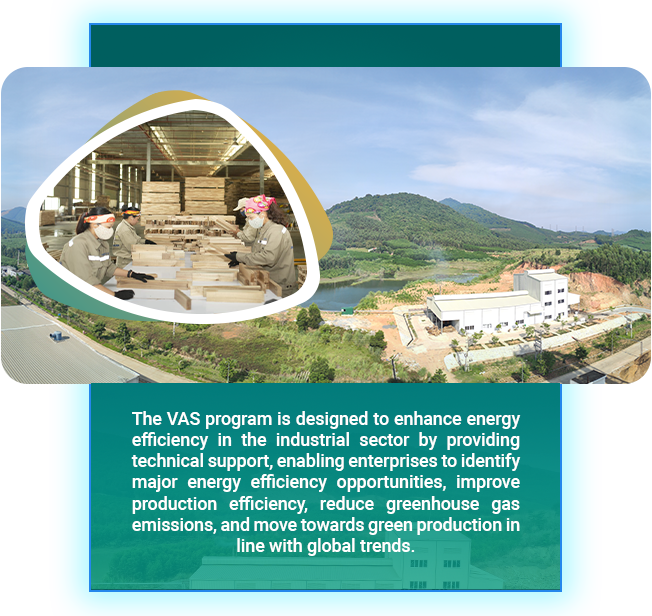
What support has your enterprise received by participating in the Voluntary Agreement Scheme, jointly implemented by the Ministry of Industry and Trade and the Danish Energy Agency?
Mr. Nguyen The Mai:
In 2023, May Forestry participated in the Voluntary Agreement Scheme on Energy Efficiency (VAS Program). Throughout this process, we received valuable technical assistance from the program’s expert team. Both local and international experts worked directly at our enterprise, conducting screenings and implementing pre-feasibility and feasibility studies to identify potential energy efficiency solutions.
Previously, we had some energy efficiency solutions; however, our technical team lacked the specialized expertise needed to calculate parameters and assess the solutions’ potential, leaving insufficient grounds for implementing these solutions in practice. Thanks to the Program, the consulting team proposed two practical and detailed energy efficiency solutions.

Could you share more details about the two energy efficiency solutions proposed by the consulting team?
Mr. Nguyen The Mai:
Based on the feasibility study report, the Program’s consulting firm suggested that May Forestry implement two system upgrades: improving the combustion furnace and the fiber drying system.
The first solution involves installing a primary air preheater for the combustion furnace to enhance efficiency and reduce fuel consumption. This measure is expected to save 1,165 tons of fuel per year, equivalent to VND 815.2 million annually, with an investment cost of VND 2.2 billion and a payback period of under three years.
The second solution proposes installing a pipeline from the dust filter in the pressing stage to the post-dryer fan to improve drying efficiency and further reduce energy use. According to the consultant’s calculation, this approach could save 1,268 tons of fuel per year, equivalent to saving VND 887.4 million, with an investment of just VND 300 million and a payback period of only 4.5 months.
Both solutions offer significant benefits – not only cutting operational costs and enhancing energy efficiency but also minimizing environmental impact. Recognizing their feasibility, we decided to implement both measures. The pipeline installation from the dust filter to the dryer fan has already been executed, while the air preheater installation for the combustion furnace is currently in the preparation phase and is expected to be implemented before Q2 2025.
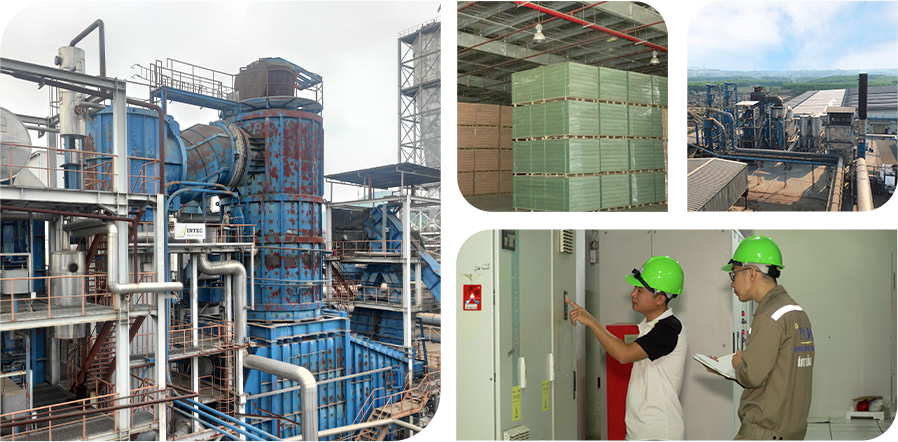
It is evident that May Forestry has received substantial support from the Ministry of Industry and Trade and the Danish Energy Agency during your participation in the VAS Program. How would you assess the outcomes achieved so far?
Mr. Nguyen The Mai:
The VAS Program has delivered significant practical benefits to May Forestry. We not only received support for energy auditing, developing technical and financial feasibility analyses for energy efficiency measures but also gained access to cutting-edge technologies and practical experience from both local and international experts.
We are very pleased with the results achieved so far. The proposed solutions are highly feasible, offering not only economic benefits but also enabling us to comply with increasingly stringent international standards on environmental protection and climate change.
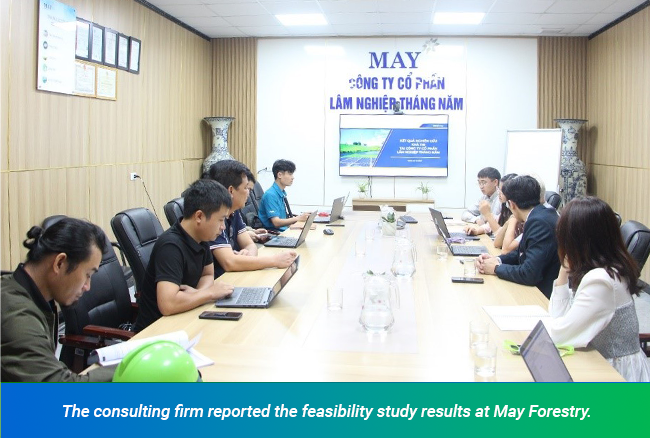
We genuinely appreciate the support and guidance from the Ministry of Industry and Trade, the Danish Energy Agency, and the Program’s expert team in assisting our transition toward greener and more sustainable production. This is a crucial motivation for us to continue investing in energy efficiency solutions, enhancing our competitiveness, and pursuing sustainable development in the future.
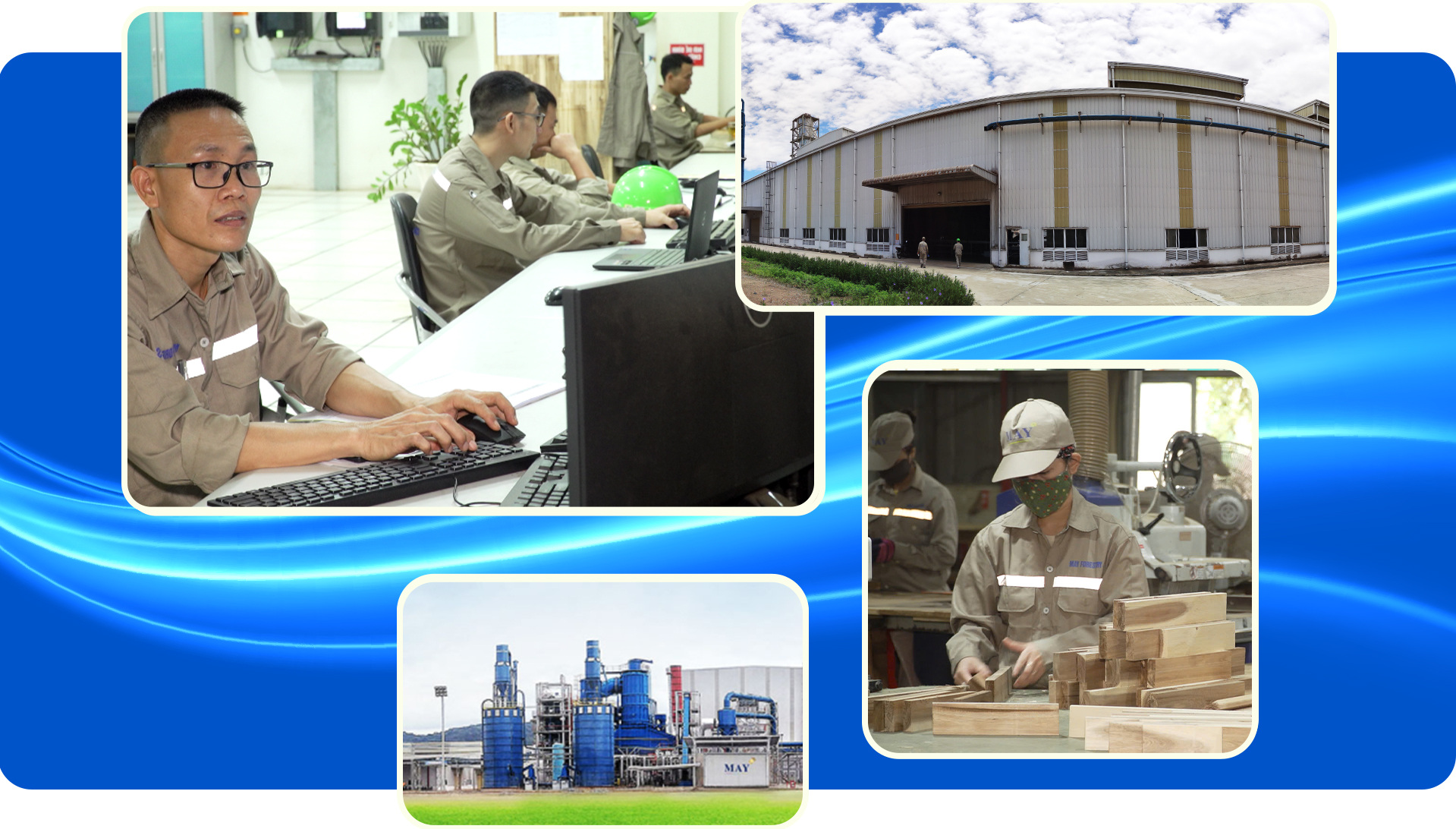
Mr. Nguyen The Mai:
We highly appreciate the Ministry of Industry and Trade’s efforts in promoting programs that support enterprises in enhancing energy efficiency, especially the VAS Program. However, to implement energy efficiency solutions comprehensively and sustainably, we hope the Ministry can provide more targeted support in the following three areas:
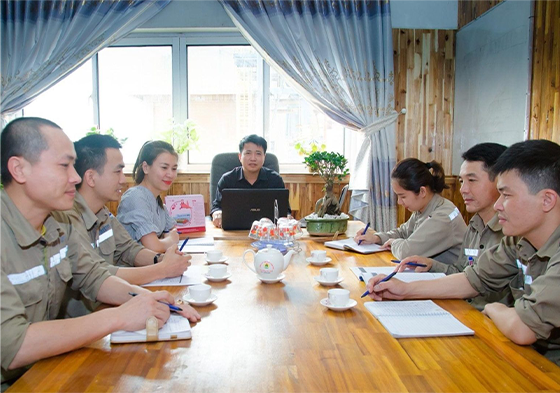
Second, strengthening connections among enterprises, consulting firms and technology providers. We hope the Ministry can act as a bridge, facilitating collaboration between enterprises in the wood processing sector, as well as the industry as a whole, and reputable consulting firms and granting access to advanced technologies that are tailored to the specific production needs of each industry.
Third, enhancing the capacity of energy management personnel. Specialized training programs on technical aspects, energy efficiency technologies, and energy management practices in enterprises are essential to strengthen the capabilities of energy management teams within the production facilities.
We believe that with the continued support and collaboration from the Ministry of Industry and Trade, enterprises will be further motivated to accelerate the green transition, improve production efficiency, and meet the increasingly stringent market demand.
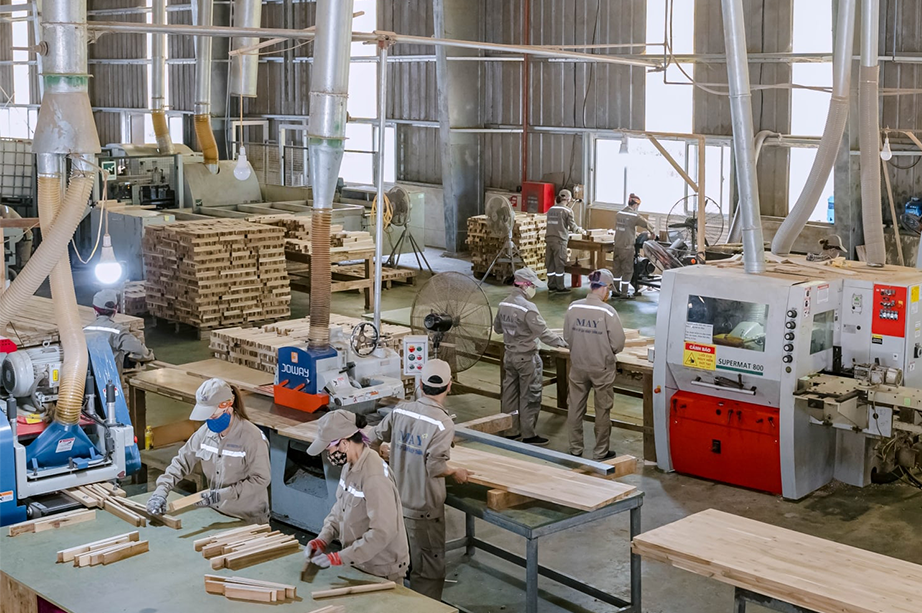
As a final question, do you have any advice or experience you’d like to share with other industrial enterprises considering participating in the VAS Program?
Mr. Nguyen The Mai:
To maximize the support provided by the VAS Program, enterprises should clearly define their goals, commit to energy efficiency efforts, and actively collaborate with the program’s experts and consulting firms from the outset. Close coordination with experts enables quick identification of suitable solutions and enhances implementation efficiency.
Additionally, after completing energy audits, pre-feasibility studies, and feasibility studies to identify viable energy efficiency solutions, enterprises should confidently invest in technology upgrades. The long-term benefits of energy efficiency far outweigh the upfront costs, delivering economic benefits while meeting the market’s growing demand for green transition. Based on May Forestry’s experience, we encourage other enterprises to proactively participate, leverage the program’s support to strengthen their market competitiveness and pursue sustainable growth.
Thank you very much!
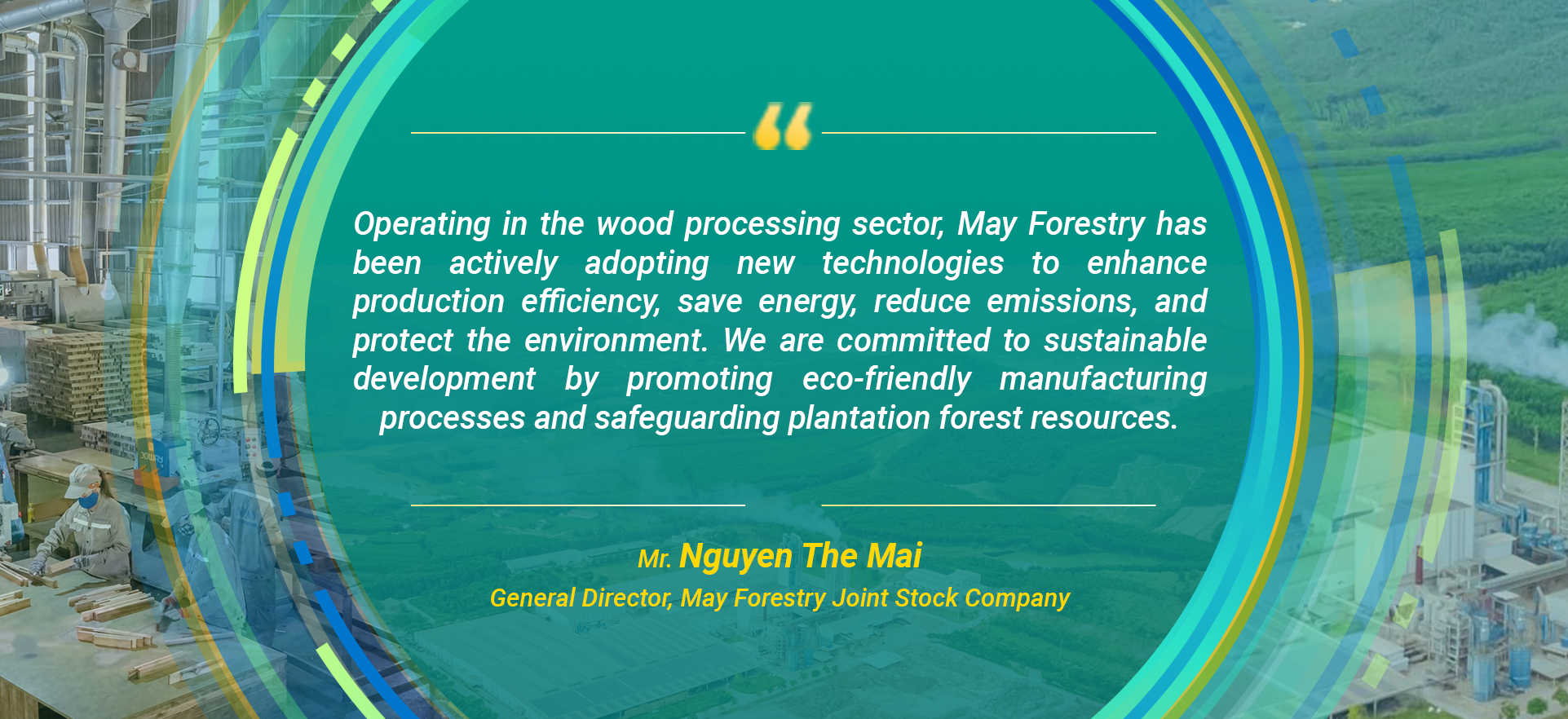
Please drop your question here. We will contact you as soon as possible.